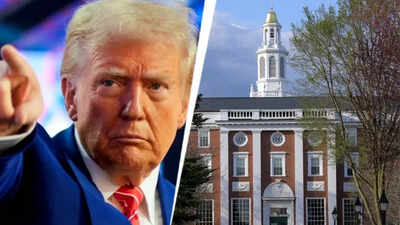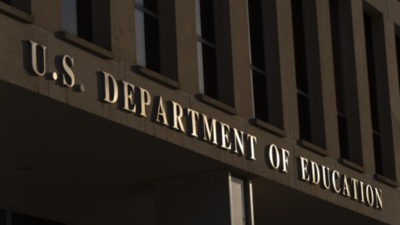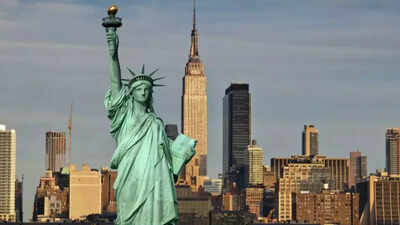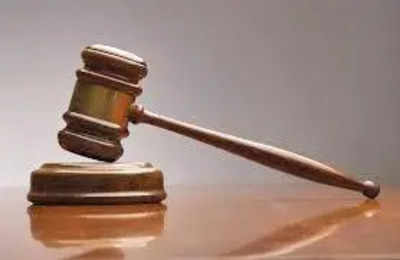Harvard invokes First Amendment in US lawsuit over academic control

Harvard University has launched a high-stakes legal battle against the Trump administration, alleging unconstitutional overreach and violations of academic freedom after the federal government froze $2.2 billion in research funding. In a lawsuit filed in the US District Court for Massachusetts, Harvard argues that the funding freeze—imposed just hours after the university rejected sweeping federal demands—violates the First Amendment, the Administrative Procedure Act, and Title VI of the Civil Rights Act of 1964.
Legal experts cited by The Harvard Crimson suggest Harvard has a strong case, which may lead to expedited judicial relief. The university claims that the Trump administration’s actions amount to punishment without due process, driven by ideological motives and an attempt to coerce the institution into aligning with the administration’s political criteria. Scholars assert that the legal challenge could redefine boundaries between governmental authority and institutional independence in US higher education.
Sweeping federal demands spark legal showdown
The lawsuit stems from an escalating conflict between Harvard and the Trump administration, which on April 11 issued a second set of demands following an initial list dated April 3. These demands required Harvard to restructure its admissions and hiring practices to achieve “ideological balance,” diminish the institutional power of junior faculty, and screen international applicants for their beliefs. The administration insisted that Harvard reject candidates perceived as “hostile to American values,” according to documentation reviewed by The Harvard Crimson.
Harvard refused to comply, citing constitutional protections and institutional autonomy. Just hours after President Alan M. Garber publicly announced Harvard’s rejection of the demands, the federal government moved to freeze $2.2 billion in grant funding. The university responded on April 15 with a legal complaint accusing nine US federal departments and agencies—including the Department of Education, Department of Justice, and National Science Foundation—of bypassing lawful procedures and retaliating against the university.
Legal scholars predict Harvard’s claims will hold in court
Seven legal scholars interviewed by The Harvard Crimson stated that Harvard’s claims were compelling. Geoffrey R. Stone, former dean of the University of Chicago Law School, described the government’s actions as “a pretty conspicuous violation of the First Amendment.” Stone emphasized that withholding funds to enforce ideological compliance “cuts at the core of academic freedom.”
Michael J. Gerhardt, a law professor at the University of North Carolina, went further, labeling the administration’s demands as “egregiously illegal,” as reported by The Harvard Crimson. Gerhardt argued that the Trump administration’s approach represents not only a misuse of executive power but also a direct threat to the constitutional autonomy of American universities.
Nicholas O. Stephanopoulos, a Harvard Law School professor, told The Harvard Crimson that compelling institutions to comply with viewpoint-based hiring practices violates fundamental rights. He stated that threats to restrict funding unless Harvard implemented ideological screening for faculty and students were “quintessential First Amendment violations.”
Administrative law also central to Harvard’s case
In addition to its constitutional claims, Harvard is challenging the federal government under the Administrative Procedure Act (APA). The university alleges that the agencies involved failed to follow their own regulatory frameworks before halting funding. The Harvard Crimson reported that under the APA, agency actions must not be “arbitrary,” “capricious,” or in “violation of constitutional rights.” Any revocation of federal assistance also requires proper notification, detailed justification, and an opportunity for the institution to respond—procedures Harvard says were entirely disregarded.
Experts agree that this procedural failure strengthens Harvard’s position. Kenneth K. Wong, a professor of education policy at Brown University, told The Harvard Crimson that the APA provides “a very good vehicle” for Harvard’s legal arguments, noting that “zero process” was conducted before the funding freeze.
Gerhardt added, as reported by The Harvard Crimson, that the administration’s abrupt decision to withhold previously awarded funds—without any formal investigation—renders the action a legal “non-starter.”
Lawsuit names multiple federal departments and seeks swift relief
Harvard’s legal complaint names nine federal departments and agencies as defendants, including the Department of Defense, the Department of Health and Human Services (HHS), NASA, and the National Institutes of Health. According to The Harvard Crimson, the HHS began issuing stop-work orders on grants almost immediately after the freeze directive. Staff at the NIH were told to halt payments without receiving explanations or legal justifications.
The university has requested that the court vacate the freeze, prohibit further disruption of funding, and expedite the resolution of the case. Harvard may also pursue a preliminary injunction or a temporary restraining order to quickly restore its access to critical research funds. Legal scholars believe the judge may act swiftly due to the scale and immediacy of the financial impact, which includes tens of millions of dollars in halted grants, as reported by The Harvard Crimson.
Peter M. Shane, an emeritus professor at Ohio State University, told The Harvard Crimson that the funding halt already imposes substantial and ongoing harm on Harvard, reinforcing the university’s case for urgent judicial intervention.
Potential precedent for US higher education
Though the outcome of the lawsuit is still uncertain, experts believe it could have far-reaching consequences beyond Harvard’s campus. Gerhardt noted that other institutions may find themselves in similar situations, and Harvard’s case could become a legal blueprint. “Harvard’s situation, though it’s not good, it’s not unique,” he said in remarks quoted by The Harvard Crimson.
Wong added that a ruling in Harvard’s favor would help clarify the boundaries of governmental authority in academic oversight, potentially setting limits on how much the federal government can intervene in university governance. However, even a victory may not shield Harvard from future funding challenges, as the administration retains wide discretion over future grants and contracts. Stephanopoulos pointed out to The Harvard Crimson that it may be harder to legally contest funding that is never awarded in the first place.
As the lawsuit proceeds, all eyes are on the US District Court in Massachusetts, where Judge Allison D. Burroughs—appointed by President Barack Obama—will preside over a case that could significantly influence the future of academic freedom and federal oversight in the US education system.





